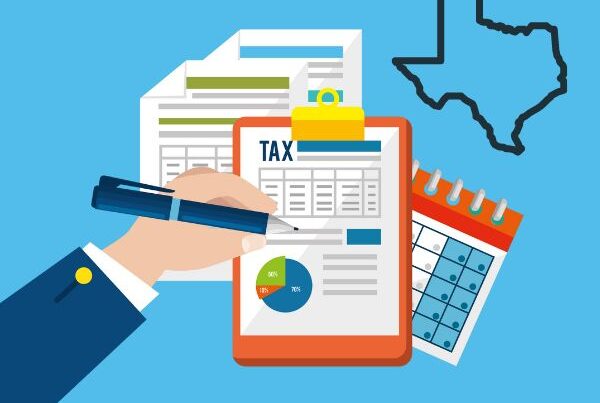Estimated reading time: 12 minutes
You may be wondering what all this buzz about ecommerce accounting is for. So, you’ve started an ecommerce business and you’re selling on Amazon, Shopify or a similar sales channel. You are focused and vibing, ordering and managing your inventory, shipping, and driving traffic to your website, etc.
In the back of your brain, you know that you will need to do some accounting for your business…but that’s super easy, right? You think you should be able to rely on knowledge from your college accounting class to handle all this. Maybe do a few Google searches. Eventually you could even hire a bookkeeper when it gets too time-consuming or difficult (great idea actually!).
So, you make $100K in sales on Amazon and you’re completely thrilled! And you SHOULD be! Go YOU!
You login to your bank account, only to discover the sad reality that Amazon only deposited $70K into your bank account!! Where did all those hard-earned dollars go?!?
You dive into trying to find out what happened, only to discover the shocking reality that ecommerce accounting is nothing like what you learned about in your one accounting class all those years ago in college. It is a beast, and a mean one at that!
You see, the problem is that, though relying on basic accounting knowledge seems like it should be good enough, this assumes that ecommerce accounting is just like accounting for any other business.
Modeling your ecommerce accounting after other businesses will likely give you a very inaccurate picture of your business, which could drastically impact your business’ success. So, what do you or your chosen bookkeeper need to learn about ecommerce accounting to get it right?
That’s exactly what we’ll cover in this blog.
What is eCommerce Accounting?
A typical business sends out invoices to its clients and gets bills from its vendors. As these are paid, the activity moves through the bank account. It’s easy to see exactly what’s going on because it’s all in one place.
But if you were to model your ecommerce accounting on this, you would end up with a hot mess AND an inaccurate picture of your business.
That’s because the biggest challenge with ecommerce accounting is that most of the activity DOESN’T happen in the bank account. It happens in the sales channels and payment processors, and what hits the bank account is only a summary of what’s going on there.
What kinds of activity are we talking about?
- Product sales
- Refunds & return fees
- Sales tax
- Advertising
- Selling fees
- Fulfillment & warehousing
- Service fees
- Shipping costs
And that’s just to name a few.
The typical accountant or bookkeeper doesn’t understand this. They want to live in the bank account and track those transactions, calling it good (the poor dears!). The inaccuracies that this method causes can have a dramatic impact on your business’s success.
Not only this, but you must also deal with inventory and COGS and timing issues and cash planning…just to name a few more. (If you don’t know what all this means, we REALLY need to talk!)
With that in mind, the first thing you’ve got to know is what to look for to do your ecommerce accounting correctly. Download our 5 Signs of Bookkeeping Trouble guide for what you need to pay attention to.
Be aware…If you haven’t started doing ecommerce-specific accounting yet, most of these things will be incorrect but they ARE fixable. And you have to start somewhere!
What Does an eCommerce Accountant Do?
You might be wondering, “What does an ecommerce accountant even do?” and “How do you know if my solution is an ecommerce accountant or simply a bookkeeper?”
Every industry has accounting nuances, and ecommerce is no different. Understanding those nuances is vital in getting accurate numbers that lead to data-driven decision making.
And the first step of understanding those nuances is knowing the difference between bookkeepers and ecommerce accountants. The terms are often used interchangeably, but they’re not the same thing.
- Bookkeepers simply reconcile bank accounts and code transactions in your general ledger.
- eCommerce accountants uncover all the hidden secrets of profitability and cash flow for an ecommerce business.
Many typical bookkeepers either aren’t aware of the aspects we mentioned in the last section, or have trouble navigating them.
As our specialized ecommerce accountants work with businesses like yours, we see three main areas ecommerce accounting that are crucial to getting accurate numbers that you can use to build your business sustainably and efficiently.
- How to find transactional data for accurate ecommerce accounting
- How to understand inventory and COGS in depth
- How to manage sales tax for online sales
1. How to Find Transactional Data for Accurate eCommerce Accounting
This is one of the most unique aspects of ecommerce accounting. Deposits into your bank account aren’t indicative of revenue, like in other businesses. If you were simply to record bank deposits from Amazon or Shopify as revenue, you would miss out on two key components.
- Income is inaccurate.
- The timing of transactions is inaccurate.
Why is Income Inaccurate?
A lot of bookkeepers don’t realize that the deposit hitting your bank account from your sales channels is not an accurate income number. These deposits are “net deposits” from your sales channels and payment processors.
A “net deposit” means other transactions, not just sales, affect the amount deposited in your bank account. These activities include:
- Sales
- Returns
- Sales tax
- Chargebacks
- Shipping paid by customers, etc.
A really good ecommerce accountant knows this, and thus takes the fearless dive into the sales channel’s back-end reports. They know that this is where you find accurate numbers for sales and all other sales channel-related activities.
It can be tricky to pull that information out of your sales channels and get it smoothly into your accounting software, but there are accounting tools like A2X to make this much easier.
Why is the Timing of Transactions Inaccurate?
Another problem with recording the “net deposit” in your bank account as income is you miss the correct timing of activities.
For example, if Amazon hits your bank account with a deposit on the 5th of January, many of the transactions for that deposit occurred in December. Those December sales should affect your numbers for closing out the previous year.
They also impact your future forecasting as you won’t have an accurate picture of what really sold in December. Over time, as your business grows, not having accurate timing of transactions (sales, expenses, liabilities, etc.) will become very significant. A2X can help with the timing of transactions as well, so if you don’t already have it set up, you may want to look into our A2X/QBO Setup and Consulting Service where we set it up and get it going properly for you. Here’s a video explaining it.
2. How to Get an In-Depth Understanding of Inventory and Cost of Goods Sold (COGS)
As an ecommerce business, you are an inventory-based company. It should come as no surprise that your inventory and COGS numbers are probably the most important numbers to have accurate and to understand correctly.
You will need more knowledge in this area of your ecommerce accounting than for a typical business. You or your ecommerce accountant should understand the following:
- How to determine your cost of goods sold (COGS) numbers and the way they affect your business
- How to effectively manage inventory processes
- Accurate bookkeeping principles for inventory and COGS (a lot of bookkeepers get this wrong!)
How Determine Your COGS Numbers and the Way They Affect Your Business
The fact is COGS is one of the most important things an ecommerce business needs to get right.
This is so important that we will categorically state that if your accountant doesn’t understand this, it’s time to find a new one.
As an ecommerce seller, inventory is your largest expense. If your COGS numbers are inaccurate, it will affect your taxable income and your profit margin. Inaccurate profit margins negatively impact your ability to effectively run your business.
Decisions about pricing, order quantity, ad spend, hiring, building a new warehouse, etc. all are affected by COGS and profit margins.
How to Effectively Manage Inventory Processes
Inventory for an ecommerce business really affects two sides of the business.
There’s the operational side:
-
- How much inventory do I have in each warehouse?
- When do I need to reorder?
- How long will my current supply last? etc.
And there’s the accounting side:
-
- COGS
- Ending inventory values
- Purchase orders, etc.
A great inventory management system can solve all the complexities that an ecommerce business experiences with inventory.
How to Accurately Handle Bookkeeping for Inventory and COGS
One of the most common mistakes we see bookkeepers make with ecommerce accounting is expensing all products immediately when the product is purchased from the vendor.
While this may seem like a reasonable approach, an ecommerce accountant knows this leaves out a huge amount of data that can really make or break your business.
Why? Because when you expense inventory right when you purchase it, it becomes difficult to understand whether your business is profitable or not. It skews your margins now and in the future.
I tell our prospective clients that your financials tell a story about your business. When you expense products at purchase, you are only telling a tiny fraction of the story. Essentially, you know the first half, but you never learn the middle or the end… and that’s just as important as the beginning!
Instead, inventory should be held on the balance sheet as an asset until the inventory is sold. This method has 3 main advantages.
- It allows you to see your profits and make the rest of your business expense decisions from an informed place.
- It also makes it easier to see how much inventory you have left as an asset at the end of the month.
- Lastly, it gives you accurate margins to plan around. This is what we mean when we say data-driven decision making.
Ultimately, this method tells you the full story of your ecommerce business.
For a more detailed explanation, read Cash vs. Accrual Accounting for Inventory.
3. How to Manage Sales Tax for Online Sales
We’re sorry to say that this one can be overwhelming and frightening, like the sales tax monster in the picture. With each state adopting its own laws around sales tax, it can feel like you’re being set up to fail.
We get it. You’re trying to run a business and it likely feels like a million fires are burning and sales tax is never the biggest fire…until it is. We call it the fire that can burn your business down.
I’m not going to go into all the details here around nexus laws and states that are aggressively looking for ecommerce businesses not paying sales tax. But I am going to tell you that this is something you don’t want to bury your head in the sand about.
Be proactive.
IMPORTANT – Collecting sales tax during the sale of your product makes it so your customer pays the sales tax.
ALSO IMPORTANT – If you don’t collect when you need to, you will be the one left holding the bill when those states come knocking.
We have a LOT of resources for how handle sales tax appropriately, but the best place to start is our 10 Steps of Sales Tax Guide.
But never fear, though, an awesome ecommerce accountant will be able to help you navigate the rapids of sales tax compliance.
They know how important sales tax compliance is for your business. They can help you determine what nexus thresholds you’ve crossed and get you registered and remitting in all those states. It can be a pretty seamless process when you partner with an ecommerce accountant who has multi-state sales tax experience.
And remember, marketplace facilitators are actually collecting and remitting sales tax on those channels on your behalf. It’s the law and yay for that!
How to Choose the Right eCommerce Accountant for Your Business
As you can see, if you really want to tame that ecommerce accounting beast, you need both great tools and, at some point, a great ecommerce accounting specialist.
eCommerce business owners wear so many hats, juggling all the pieces required to run a successful ecommerce business. It makes sense to save yourself some annoyance and find an ecommerce accountant to handle the books for you.
The table below shows some of the areas of accounting specific to ecommerce, along with why this is different from traditional accounting and some solutions you may want to consider.
Area of accounting |
Why it’s different for Ecommerce |
Solutions |
Finding & reading transactional data correctly |
eCommerce transactions are found on the businesses’ sales channels. They are NOT found in the bank accounts and credit cards, as in a traditional business. |
|
Inventory and COGS |
Inventory and COGS are the most important numbers for your ecommerce business. You will need in-depth knowledge in order to tell the full story around the following:
|
|
Sales tax |
Ecommerce sales tax laws are complicated and constantly changing from state-to-state. You need to know individual state nexus laws and thresholds. |
|
Why LedgerGurus May Be a Good Fit for Your Business
LedgerGurus is a cloud-based, ecommerce-specialized accounting firm. We relieve the stress and overwhelm our clients feel by freeing them from their accounting headaches. We help our clients succeed by giving them solid, reliable numbers to build their businesses with.
Besides this, there are four things that may make us a great fit for your business.
eCommerce Specialized
LedgerGurus focuses on ecommerce accounting services. We combine ecommerce-specialized accountants and bookkeepers with processes and technology to provide a solution that matures and advances your business.
Team of Experts
When you work with LedgerGurus, you aren’t just getting an accountant or bookkeeper. You get an entire team of experts. With years of varying business experience, we can provide you with a team that is the right fit for your company and your financial needs.
Customizable Experience
Our processes and services are flexibly structured in order to accommodate our clients’ specific needs. You may need our full line of services, or you may decide to choose services a la carte. Either way, we are here to grow with you and guide you with your ecommerce business decisions by providing solid, reliable numbers and showing you how to read and understand them.
100% Remote Accountants
Because we are 100% remote, we understand how to serve our ecommerce clients. We speak to our clients’ unique challenges by providing direct, timely answers to questions and concerns. We do this by via the best technology to help improve their experience.
If you’d like more details, watch the video.
If you would like to work with LedgerGurus so we can help you build your business with better numbers, let us know. We’re happy to help.









